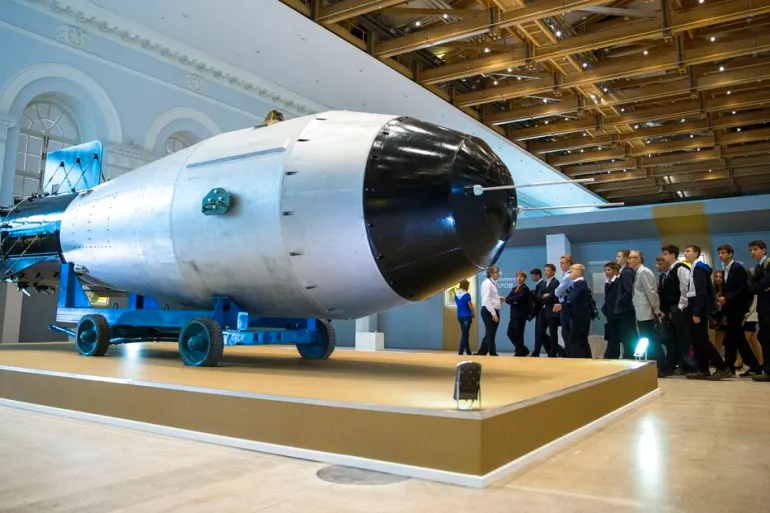
In our AVİM analysis back in 2019, we pointed out that that nearly all arms control regimes in Europe have lost their significance after the outbreak of the conflict in Ukraine in 2014 and that it is no longer possible to talk about the existence of credible conventional arms control regimes in the Organization for Security and Co-operation in Europe (OSCE) area. We also stated that developments in the nuclear arms control field are worrisome and drew attention to the fact that the United States withdrew from the Intermediate-Range Nuclear Forces (INF) Treaty on August 2, 2019. The Russian Federation also announced that the Treaty had ended. In this context, we are reminded that nuclear weapon states of the Treaty on the Non-Proliferation of Nuclear Weapons (NPT) still assert that deterrence plays a role in preserving regional and international security. In contrast, many non-nuclear weapon states of the NPT raise their concern about the new nuclear arms race and the adverse developments in the nuclear arms control field.[1] In this context, undoubtedly, the most important issue is the faith of the strategic nuclear arms control agreements.
It is worth remembering that the most important legally binding verifiable agreement in the strategic nuclear arms control context is the New Strategic Arms Reduction Treaty (New START) signed between the United States and Russia on April 8, 2010. The Treaty is limiting each side to 1,550 strategic nuclear warheads deployed on 700 strategic delivery systems (intercontinental ballistic missile -ICBMs-, submarine-launched ballistic missile-SLBMs-, and heavy bombers assigned to an atomic mission) and limiting deployed and nondeployed launchers, including those in overhaul, to 800. The Treaty does not restrict non-deployed ICBMs and SLBMs.[2] The U.S. Senate approved New START on December 22, 2010. The approval process of the Russian parliament was completed on 26, 2011. The Treaty entered into force on February 5, 2011, and both parties met the Treaty's central limits by the implementation deadline on February 5, 2018. The United States and Russia agreed on February 3, 2021, to extend New START by five years, as allowed by the treaty text, until February 5, 2026. In tandem with the military operation against Ukraine, Russia suspended the implementation of New START in February 2022. Russian President Vladimir Putin, in his address to the Russian Federal Assembly, stated in this respect the following:
"In this regard, I am compelled to announce today that Russia is suspending its membership in the New START Treaty. To reiterate, we are not withdrawing from the Treaty, but rather suspending our participation. Before we come back to discussing this issue, we must have a clear idea of what NATO countries such as France or Great Britain have at stake, and how we will account for their strategic arsenals, that is, the Alliance's combined offensive capabilities."[3]
The U.S. has taken specific countermeasures regarding implementing New START in June 2023, amounting to a reciprocal suspension of the Treaty. However, it emphasized its readiness to reverse these countermeasures if Russia returned to compliance. The U.S. statement on the subject stressed, among others, the following:
"The United States is committed to full and mutual implementation of the New START Treaty. Consistent with that commitment, the United States has adopted lawful countermeasures in response to the Russian Federation's ongoing violations of the New START Treaty. The Russian Federation's purported suspension of the New START Treaty is legally invalid. As a result, Russia remains bound by its New START Treaty obligations, and is violating the Treaty by failing to fulfill many of those obligations. U.S. countermeasures are fully consistent with international law. They are proportionate, reversible, and meet all other legal requirements. International law permits such measures in order to induce a state to return to compliance with its international obligations. The United States notified Russia of the countermeasures in advance, and conveyed the United States' desire and readiness to reverse the countermeasures and fully implement the Treaty if Russia returns to compliance. The United States remains ready to work constructively with Russia on resuming implementation of the New START Treaty."[4]
Verifiable, legally binding limitations on the size of Russia's and the United States' strategic nuclear arsenals have been in place since 1972. But this will no longer be the case after 2026 if New START is not replaced. As it will be understood from President Putin's remarks, the most important substantive disagreement between Russia and the U.S. regarding the renewal of the strategic nuclear arms treaty is the inclusion of additional countries. Russia insists that France and the United Kingdom must participate because they are U.S. allies, while the U.S. aspires to include China because of its expanding nuclear arsenal. France[5] and the U.K.[6] have resisted Russian calls to join a legally binding multilateral agreement because of their small arsenal sizes. China[7] has similarly rejected U.S. suggestions to be included in a future treaty for the same reason. These disputes highlight the difficulty of concluding a multilateral, legally binding new START treaty with participation by more than two countries. Failure to complete a new treaty will bring with it the danger of an arms race in the field of strategic nuclear weapons.
This picture, which essentially reveals a dark future of strategic nuclear arms control, has become even darker recently with the Russian Federation's announcement that it will revoke its ratification of the Comprehensive Nuclear Test Ban Treaty (CTBT). Russia's envoy to the Comprehensive Nuclear-Test-Ban Treaty Organization (CTBTO), Mikhail Ulyanov, announced on social media that "Russia plans to revoke ratification (which took place in the year 2000) of the Comprehensive Nuclear-Test-Ban Treaty. The aim is to be on equal footing with the U.S., who signed the Treaty but did not ratify it. Revocation does not mean the intention to resume nuclear tests."[8] Mikhail Ulyanov made this statement two days after Russian President Vladimir Putin announced in his speech in Sochi on October 5 that Russia could withdraw from CTBT. President Putin touched upon the issue as follows in his remarks:
"The fact that I am already hearing calls, for example, to start or, in fact to resume nuclear tests is a whole different matter. Here is what I can say in this regard. The United States signed an international instrument, a document – the Comprehensive Test Ban Treaty, and so did Russia. Russia signed and ratified it, while the United States signed the Treaty without ratifying it. Our effort to develop new strategic weapons is nearing completion. I have already talked about them and announced their development several years ago. The latest test launch of Burevestnik was a success. This is a nuclear-powered cruise missile with a basically unlimited range. By and large, Sarmat, the super heavy missile, is also ready. All we have left is to complete all the administrative and bureaucratic procedures and paperwork so that we can move to mass production and deploy it in combat standby mode. We will do this soon. Specialists tend to argue that these are new kinds of weapons, and we need to make sure that their special warheads are fail-free, so we need to test them. I am not ready to tell you right now whether we need or do not need to carry out these tests. What we can do is act just as the United States does. Let me repeat one more time that the United States signed the Treaty without ratifying it, while we both signed and ratified it. As a matter of principle, we can offer a tit-for-tat response in our relations with the United States. But this falls within the purview of State Duma MPs. In theory, we can withdraw the ratification, and if we do, this would be enough."[9]
It is reported in the press that, responding to Russia's announcement, the U.S. State Department said, "We are disturbed by the comments of Ambassador Ulyanov in Vienna today... move like this by any state party needlessly endangers the global norm against nuclear explosive testing."[10]
CTBT prohibits any nuclear weapon test explosion or any other nuclear explosion anywhere in the world. The Treaty was opened for signature in September 1996 and has been signed by 187 nations and ratified by 178. The Treaty cannot formally enter into force until it is ratified by 44 specific countries, eight of which have yet to do so: China, India, Pakistan, North Korea, Israel, Iran, Egypt, and the United States. Thus, CTBT has not formally entered into force. The Treaty establishes a global network of monitoring facilities to verify compliance with its provisions and allows on-site inspections of suspicious events. Since the conclusion and opening for signature of the CTBT, nuclear testing has become taboo. Today, even those nuclear-armed states that have not signed or not ratified the CTBT, including India, Israel, and Pakistan, observe nuclear testing moratoriums. Only one country has conducted nuclear test explosions in this century, and even that country—North Korea—halted atomic testing in 2017.[11] Türkiye, among the 44 specific countries whose ratifications are needed for entry into force, ratified the Treaty on February 16, 2000.[12]
It should be underlined that the U.S. Senate's refusal to ratify the CTBT on October 13, 1999, dealt a significant blow to international efforts to prevent the proliferation of nuclear weapons. The disappointment caused by this decision is reflected in the report published in the Washington Post newspaper at that time as follows:
"The GOP-controlled Senate emphatically rejected the Comprehensive Test Ban Treaty yesterday, dealing a devastating blow to a pact that has been at the center of global efforts to curb the spread of nuclear weapons. Senate Republicans said it would be impossible to ensure that other nations were abiding by the Treaty, and they argued that the pact would make it difficult for the United States to ensure the viability of its own nuclear stockpile. They rejected Democratic complaints that they were sending a dangerous message to other nations interested in joining the nuclear club. Indeed, the 51 to 48 vote against the pact fell largely along party lines, with only four Republicans joining 44 Democrats in supporting the Treaty -- far short of the two-thirds necessary for ratification."[13]
As we noted earlier, President Vladimir V. Putin claimed in his speech in Sochi that Russia had successfully tested the Burevestnik (whose name translates as storm petrel), a global-range nuclear-powered cruise missile, and had almost completed work on a new type of nuclear-capable ballistic missile.[14] President Putin mentioned that Russia's RS-28 Sarmat intercontinental nuclear-capable ballistic missile, dubbed as "Satan II" in some media reports, is now in combat-ready mode.
All these developments indicate that the legally binding arms control regimes created due to years of international efforts have entered the moribund phase, even if not dead. Considering that it will be challenging to develop politically binding risk-reduction measures or even fulfill unilateral non-binding moratorium commitments in the current extraordinarily volatile and tense security environment, it is possible to predict that thorny days are ahead for our world in the coming period. The only way out of this darkness is not just to preserve existing arms control regimes but to upgrade these regimes for the benefit of humanity.
*Image: Al Jazeera
[1] Teoman Ertuğrul Tulun, “Stimulus Actions Are Needed For New Arms Control And Disarmament Mindset In Eurasia,” Center For Eurasian Studies Analysis Series, Analysis Series, 2019, no. 26 (November 11, 2019): 4, https://doi.org/10.31219/osf.io/vf8rp , https://avim.org.tr/en/Analiz/STIMULUS-ACTIONS-ARE-NEEDED-FOR-NEW-ARMS-CONTROL-AND-DISARMAMENT-MINDSET-IN-EURASIA#_ftn3.
[2] Daryl Kimball, “U.S.-Russian Nuclear Arms Control Agreements at a Glance,” International Organization, Arms Control Association, October 2022, https://www.armscontrol.org/factsheets/USRussiaNuclearAgreements.
[3] Vladimir Putin, “Vladimir Putin Delivered His Address to the Federal Assembly. The Ceremony Took Place in Gostiny Dvor, Moscow” (Presidential Address, Federal Assembly of the Russian Federation, February 21, 2023), http://en.kremlin.ru/events/president/news/70565.
[4] “U.S. Countermeasures in Response to Russia’s Violations of the New START Treaty,” Government, United States Department of State (blog), June 1, 2023, https://www.state.gov/u-s-countermeasures-in-response-to-russias-violations-of-the-new-start-treaty/.
[5] Emmanuel Macron, “Speech of the President of the Republic on the Defense and Deterrence Strategy” (Presidential Address, Elysee, February 7, 2020), https://www.elysee.fr/en/emmanuel-macron/2020/02/07/speech-of-the-president-of-the-republic-on-the-defense-and-deterrence-strategy.
[6] Stephen Lovegrove, “Sir Stephen Lovegrove Speech at CSIS, Washington DC” (Virtual event, CSIS, Washington DC, July 27, 2022), https://www.gov.uk/government/speeches/sir-stephen-lovegrove-speech-at-csis-washington-dc.
[7] Zhao Lijian, “Foreign Ministry Spokesperson Zhao Lijian’s Regular Press Conference on July 10, 2020” (Press Conference, July 10, 2020), http://laoag.china-consulate.gov.cn/eng/fyrth/202007/t20200710_5101618.htm.
[8] Julian Borger, “Russia Will Revoke Ratification of Nuclear Test Ban Treaty, Envoy Says,” The Guardian, October 7, 2023, sec. World news, https://www.theguardian.com/world/2023/oct/06/nuclear-watchdog-russia-putin-testing-treaty.
[9] Presidental Executive Office, “Vladimir Putin Took Part in the Plenary Session of the 20th Anniversary Meeting of the Valdai International Discussion Club.,” Government, President of Russia, October 6, 2023, http://en.kremlin.ru/events/president/news/72444.
[10] Al Jazeera Editors, “US ‘Disturbed’ by Russia’s Plan to Reverse Nuclear Test Ban Ratification | Nuclear Weapons News | Al Jazeera,” Al Jazeera, October 7, 2023, sec. Nuclear Weapons, https://www.aljazeera.com/news/2023/10/7/us-disturbed-by-russias-plan-to-reverse-nuclear-test-ban-ratification.
[11] Daryl Kimball, “Comprehensive Test Ban Treaty at a Glance,” International Organization, Arms Control Association, September 2022, https://www.armscontrol.org/factsheets/test-ban-treaty-at-a-glance.
[12] United Nations, “CHAPTER XXVI. Disarmament. 4. Comprehensive Nuclear-Test-Ban Treaty” (United Nations Treay Collections, September 10, 1996), https://treaties.un.org/Pages/ViewDetails.aspx?src=TREATY&mtdsg_no=XXVI-4&chapter=26&clang=_en.
[13] Helen Dewar, “Senate Rejects Test Ban Treaty,” Washington Post, October 14, 1999, sec. Politics, https://www.washingtonpost.com/wp-srv/politics/daily/oct99/senate14.htm.
[14] Robert Plummer, “Putin Makes Nuclear-Powered Burevestnik Missile Test Claim,” BBC News, October 5, 2023, sec. Europe, https://www.bbc.com/news/world-europe-67021695.
© 2009-2025 Center for Eurasian Studies (AVİM) All Rights Reserved
No comments yet.
-
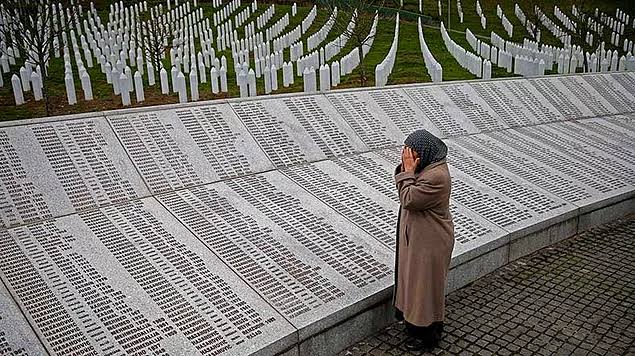 THE DEEP WOUND OF THE BOSNIAK NATION, BALKANS, AND EUROPE: THE SREBRENICA GENOCIDE
THE DEEP WOUND OF THE BOSNIAK NATION, BALKANS, AND EUROPE: THE SREBRENICA GENOCIDE
Teoman Ertuğrul TULUN 16.07.2019 -
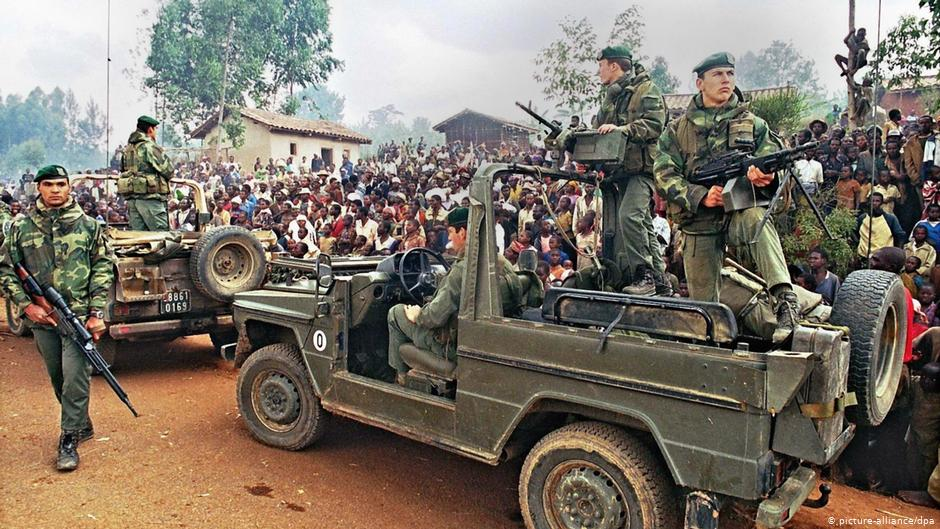 FRANCE'S COLONIAL SINS IN AFRICA: IS FRANCE REALLY NOT AN ACCOMPLICE TO THE RWANDAN GENOCIDE?
FRANCE'S COLONIAL SINS IN AFRICA: IS FRANCE REALLY NOT AN ACCOMPLICE TO THE RWANDAN GENOCIDE?
Teoman Ertuğrul TULUN 28.06.2021 -
 TIRANA SUMMIT MIDST MULTIPLE PROCESSES: A CONFUSED EUROPEAN UNION IN THE BALKANS
TIRANA SUMMIT MIDST MULTIPLE PROCESSES: A CONFUSED EUROPEAN UNION IN THE BALKANS
Teoman Ertuğrul TULUN 14.12.2022 -
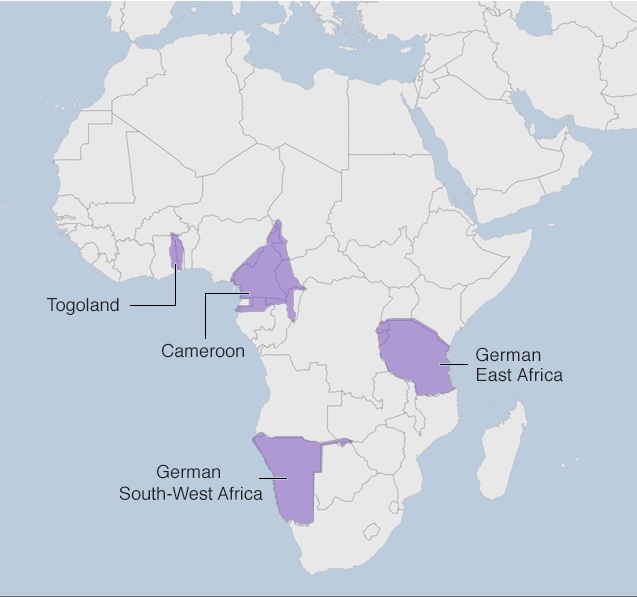 GERMAN COLONIAL LEGACY: TANZANIA AND THE HUMBOLDT FORUM
GERMAN COLONIAL LEGACY: TANZANIA AND THE HUMBOLDT FORUM
Teoman Ertuğrul TULUN 01.02.2021 -
 THE DARKNESS BEYOND WIKIPEDIA'S EXPOSED FACE: EXAMINING ITS ROLE IN INFORMATION MANIPULATION
THE DARKNESS BEYOND WIKIPEDIA'S EXPOSED FACE: EXAMINING ITS ROLE IN INFORMATION MANIPULATION
Teoman Ertuğrul TULUN 22.04.2024
-
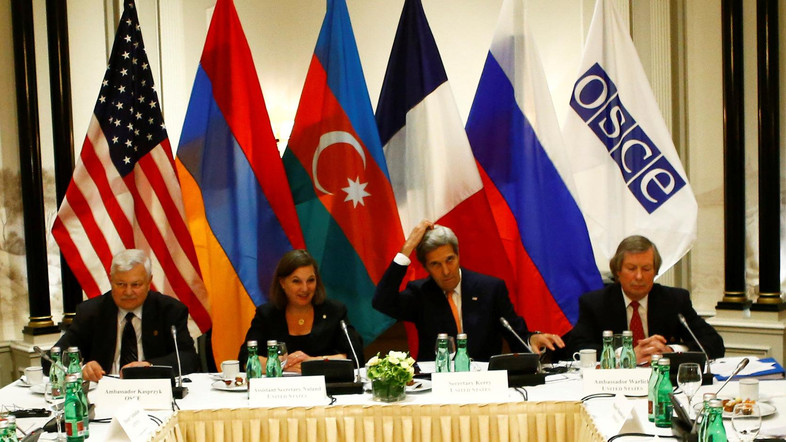 “QUIET DIPLOMACY” IN NAGORNO KARABAKH CONFLICT AND ARMENIAN ELECTIONS
“QUIET DIPLOMACY” IN NAGORNO KARABAKH CONFLICT AND ARMENIAN ELECTIONS
AVİM 24.04.2018 -
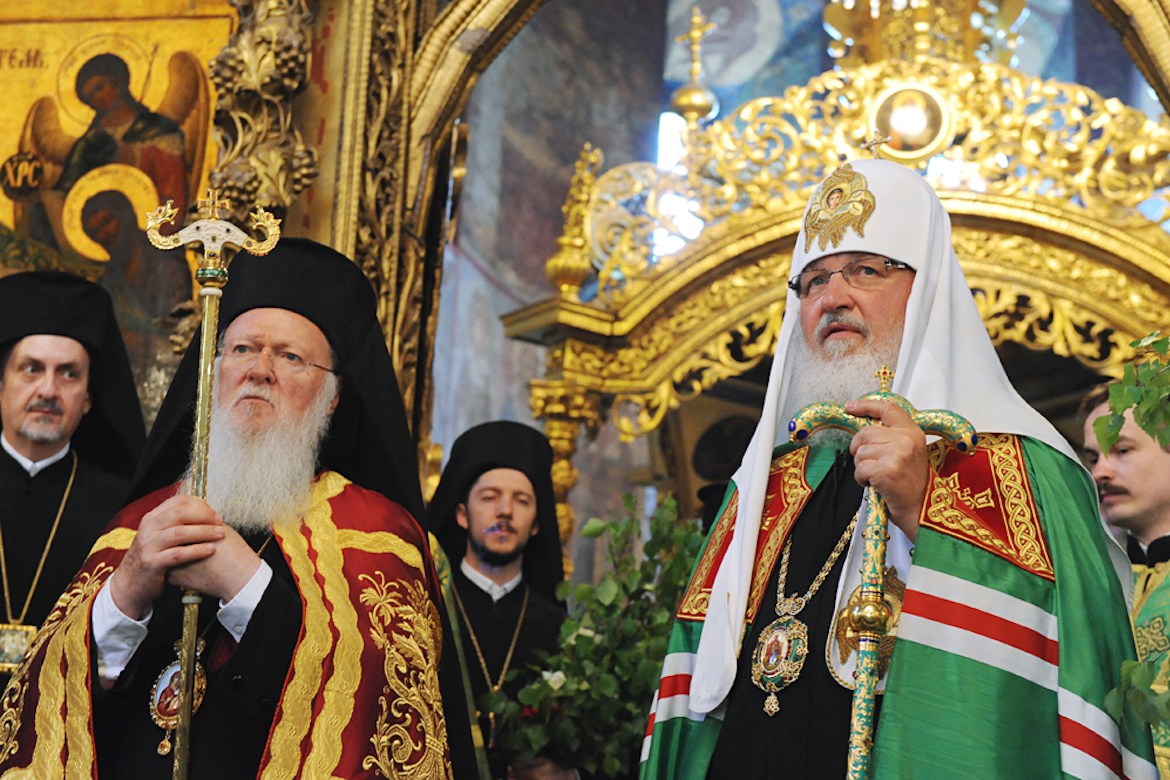 IS ECUMENISM BEING DISRUPTED IN THE CHRISTIAN WORLD?
IS ECUMENISM BEING DISRUPTED IN THE CHRISTIAN WORLD?
Mehmet Oğuzhan TULUN 24.09.2018 -
 GERMANY’S FAR-RIGHT TERRORISM AND THE TIMID NSU CASE VERDICT
GERMANY’S FAR-RIGHT TERRORISM AND THE TIMID NSU CASE VERDICT
Teoman Ertuğrul TULUN 25.09.2020 -
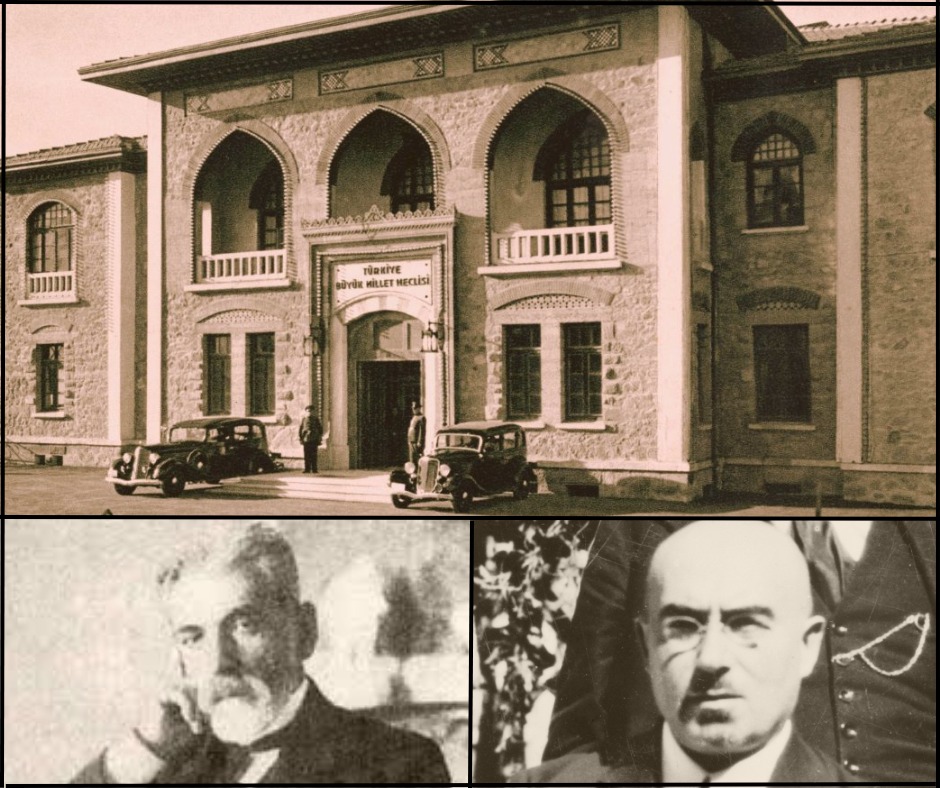 ARMENIANS NEED TO STUDY THEIR HISTORY BETTER
ARMENIANS NEED TO STUDY THEIR HISTORY BETTER
Yiğit ALPOGAN 19.01.2023 -
 BREXIT: NEW PARADIGM SHIFT FOR GLOBALIZATION AND SIGNAL FOR NEW WORLD ORDER
BREXIT: NEW PARADIGM SHIFT FOR GLOBALIZATION AND SIGNAL FOR NEW WORLD ORDER
Teoman Ertuğrul TULUN 27.01.2017
-
25.01.2016
THE ARMENIAN QUESTION - BASIC KNOWLEDGE AND DOCUMENTATION -
12.06.2024
THE TRUTH WILL OUT -
27.03.2023
RADİKAL ERMENİ UNSURLARCA GERÇEKLEŞTİRİLEN MEZALİMLER VE VANDALİZM -
17.03.2023
PATRIOTISM PERVERTED -
23.02.2023
MEN ARE LIKE THAT -
03.02.2023
BAKÜ-TİFLİS-CEYHAN BORU HATTININ YAŞANAN TARİHİ -
16.12.2022
INTERNATIONAL SCHOLARS ON THE EVENTS OF 1915 -
07.12.2022
FAKE PHOTOS AND THE ARMENIAN PROPAGANDA -
07.12.2022
ERMENİ PROPAGANDASI VE SAHTE RESİMLER -
01.01.2022
A Letter From Japan - Strategically Mum: The Silence of the Armenians -
01.01.2022
Japonya'dan Bir Mektup - Stratejik Suskunluk: Ermenilerin Sessizliği -
03.06.2020
Anastas Mikoyan: Confessions of an Armenian Bolshevik -
08.04.2020
Sovyet Sonrası Ukrayna’da Devlet, Toplum ve Siyaset - Değişen Dinamikler, Dönüşen Kimlikler -
12.06.2018
Ermeni Sorunuyla İlgili İngiliz Belgeleri (1912-1923) - British Documents on Armenian Question (1912-1923) -
02.12.2016
Turkish-Russian Academics: A Historical Study on the Caucasus -
01.07.2016
Gürcistan'daki Müslüman Topluluklar: Azınlık Hakları, Kimlik, Siyaset -
10.03.2016
Armenian Diaspora: Diaspora, State and the Imagination of the Republic of Armenia -
24.01.2016
ERMENİ SORUNU - TEMEL BİLGİ VE BELGELER (2. BASKI)
-
AVİM Conference Hall 24.01.2023
CONFERENCE TITLED “HUNGARY’S PERSPECTIVES ON THE TURKIC WORLD"









